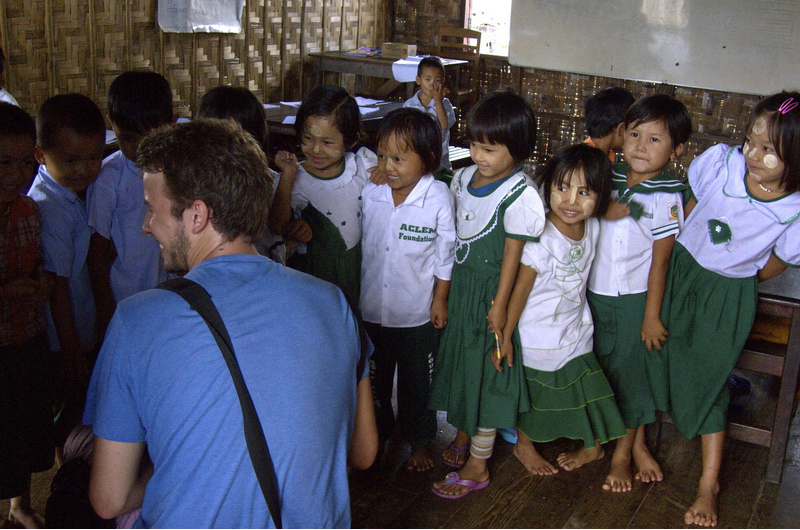When you’re first looking into moving and teaching English abroad, modern and comfortable Western Europe is certainly appealing. It’s culturally familiar to people who grew up in the English-speaking world, and looks from a distance like an easier destination. But it’s important to remember, as you sift through the millions of programs and positions out there, that there’s much more to the world than Europe, and teaching abroad is your chance to experience it.
Make a Real Impact
When you work abroad in a developing country, you’ll typically be working with students who don’t have access to the high-quality English education available to kids in Western Europe. Your students in Thailand, Colombia or Vietnam probably won’t have gone to bilingual schools, or have bilingual parents, as is so common in France or Germany. Since many of these countries are have only been focusing on English education for the last decade or so, most of the teachers in these systems came up without it, and therefore don’t speak it fluently or confidently. Your native English skills can actually make a huge impact in your students’ lives.

Make a Good Living
While your teaching salary probably won’t be huge when you convert it to your home currency, it will go far in your host country. The cost of living in developing countries is extremely low compared to what you’re used to. Even while teaching English in major cities like Bangkok and Bogota, you’ll be paying a fraction of the rent you would in Chicago or London. In smaller cities, your rent may be under $100/month. Food is equally cheap. So your salary, usually very generous by local standards, will afford you a great living.

Travel on the Cheap
Living in Europe is fabulous, and country-hopping is a blast, but with most of your salary going towards sky-high rent and expensive groceries, it’s hard to save the money to take a weekend trip that will set you back several hundred euros. The cost of living in Western Europe is high, which translates to high costs for meals and lodging.
When you’re working in a developing country, travel is cheap. Transport, meals and lodging are easy to fit into a teacher’s budget, so you’ll be able to see every corner of your host country without spending all your savings.

Challenge Yourself While Building A Stellar Resume
Another big draw of Europe is that the school system is familiar. A Spanish or German classroom is recognizable and relatively comfortable for someone who went to school in a developed country. At first glance, the large size and minimal resources of a classroom in Thailand or Colombia can be scary. And yes, it is definitely a challenge. But that’s exactly what’s so great about this experience. You’ll learn that being a great teacher isn’t about knowing how to utilize the most modern technology, and that the best teachers can put on an effective lesson with 12 kids or with 50. It will make you a stronger educator.
Outside of the classroom, living in a developing country will make you a stronger person. You’ll learn about what things you actually need, and which things are luxuries that you can easily do without. You’ll learn to appreciate all of incredible perks of life in your home country; when you come home from a year in Myanmar, you’ll never take for granted the comforts and privileges of life back home. And if you are looking to start a career after teaching abroad, your resume will boast some serious credentials and international work experience.


Hi,
I am Italian and I am a master graduated in Physics and in philosophy. I would like to ask you if there is any opportunity to teach math in your program. In addition I d like to ask you if teachers involved in programs are voulonteers or paid workers.
Many thanks
Elisa
Hello,
I have a BA Hons in psychology with history and a vast experience working within the residential school setting as a support worker. I have attributes and skills to teach and are looking for possible opportunities. If you think I would suit any posts available, please get in touch with me.
Hi Louise,
You can schedule a call to speak to a Greenheart staff member by finding the program you are interested in and navigating to the “Schedule a Call” tab on the left hand side. Here’s a link of all of our current teach abroad programs: https://greenhearttravel.org/programs/adult/teach